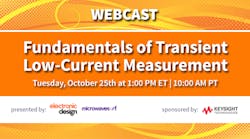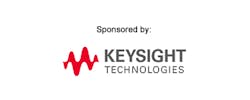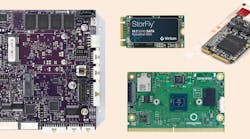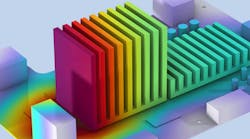Date & Time
- This webinar is now available On-Demand.
- Please complete the registration.
Event Type
- On-Demand Webinar
Speakers
pplication EngineerKeysight Technologies
Description
Why this webcast is important:
The measurement of fast transient voltages is a relatively well-understood and documented procedure. However, the measurement of fast transient currents presents a number of measurement challenges that make them much more difficult than measuring voltage transients. Digital multi-meters (DMMs) and oscilloscopes using either shunt resistors or a current probe are the most common methods for measuring AC current, but they all have drawbacks:
1. DMMs have limited bandwidth and cannot reveal any details about dynamic current behavior
2. Oscilloscope shunt resistor techniques often introduce unacceptable voltage drops and noise, besides having limited dynamic range.
3. Oscilloscope current probes require degaussing and adjustment, and they cannot typically measure below a few microamps of current.
This webcast will review the above solutions and then explain new techniques and equipment that can support the measurement of transient currents into the nanoamp and picoamp range at 1 Ghz sampling rates and up to 200 MHz of bandwidth. While the primary focus of this webcast is on the characterization of devices and materials, many of the techniques to be discussed are general and can also be applied to other situations (such as component and module testing).
Who should view this webcast:
Engineers, scientists and researchers that need to make low-level transient current measurements would benefit from attending this webcast.






